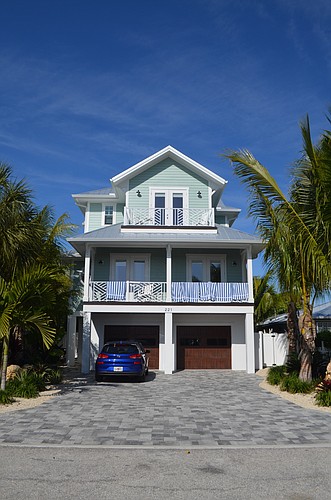- May 3, 2025
-
-
Loading

Loading

In late 2019, residents on St. Armands Key reached out to city officials with concern about what they saw as a growing issue: the use of large single-family homes as vacation rentals in their neighborhood.
Less than a year later, the city is moving toward taking action aimed at the properties St. Armands residents dubbed “hotel houses.” On Monday, the City Commission unanimously directed staff to draft a series of regulations intended to prevent disruptive activity from large groups of vacationers staying in residential areas.
During the meeting, testimony from more than a dozen residents of Sarasota’s barrier islands attested to issues associated with large vacation rentals in their neighborhood. They also said it’s a growing phenomenon: St. Armands resident Julie Bales said her family purchased a home in the area with the confidence it was zoned residential, but today, there are three large houses used primarily as vacation rentals in close proximity.
“We don’t use our lanai,” Bales said. “We don’t use our backyard. We stay in our house with the windows closed — and sometimes we still hear the noise.”
Mayor Jen Ahearn-Koch, who first brought this topic before the commission for discussion in January, agreed these properties posed a serious problem that demanded swift action.
“This is something that is destructive to neighborhoods,” Ahearn-Koch said.
As the city set out to explore its options for regulating these properties, it had to also consider state regulations restricting some local authority over vacation rentals. State law dictates that local government cannot establish new regulations prohibiting vacation rentals or limiting the length or frequency of rentals.
Working with St. Armands residents, City Attorney Bob Fournier focused his attention on a different form of regulation aimed at the size of a home and the number of occupants staying there. Leaders of the St. Armands Residents Association argued existing city regulations supported limitations on these fronts. The city’s zoning code defines a hotel as a building with six or more guest rooms, among other standards.
The code also specifies that “household living” is an allowed use in residential neighborhoods and “characterized by the residential occupancy of a dwelling unit by a family.” The code provides multiple definitions for a family, including “a group of not more than four persons not related by blood, marriage or adoption.” St. Armands residents argued the city could use that to prohibit large groups of unrelated individuals staying in the same rental house, but city staff said establishing no relation between guests could be difficult.
Fournier said the city could likely take advantage of some existing regulations to discourage problematic behavior at rental properties, but he also said establishing new rules could help bolster the case of city code compliance officials.
Fournier said future conversations about rental regulations would likely include a focus on more technical details about how an ordinance would be worded and how the city might effectively enforce it. Fournier said the city also had to be mindful of potential claims under the Bert J. Harris Jr. Private Property Rights Protection Act, which allows a landowner to seek monetary compensation over governmental regulations that result in an alleged loss of property value.
Commissioner Hagen Brody said he supported gathering more information about regulatory options available to the city, but he wanted to be confident that any rules the city ultimately adopts are both effective and not unintentionally detrimental to rental properties that aren’t causing issues.
“I have a lot of reservations, no pun intended, on this issue,” Brody said.